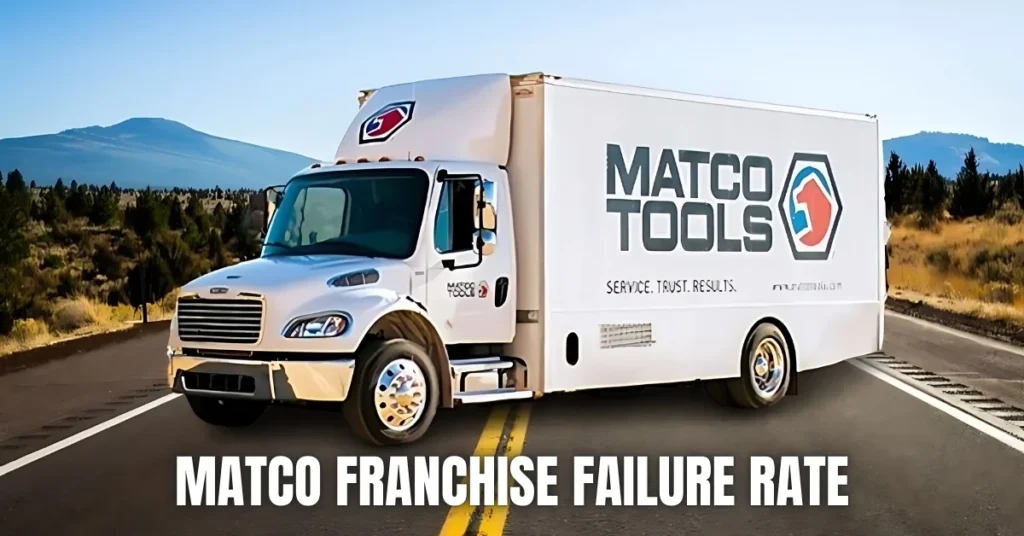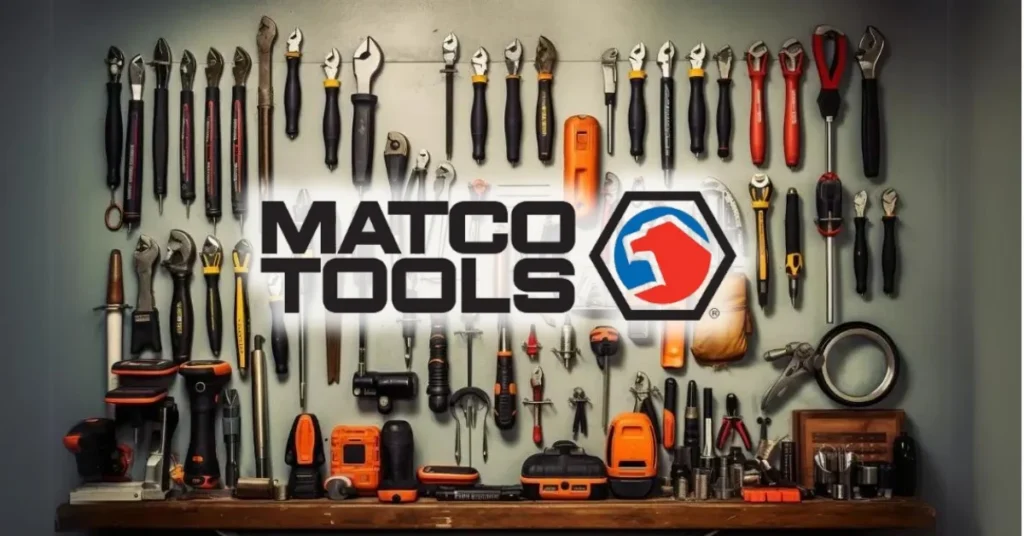Investing in a franchise can be a rewarding way to start your own business while leveraging an established brand. Matco Tools, a leading automotive tool distribution franchise, offers an intriguing opportunity for entrepreneurs looking to break into the industry. However, like any business venture, it comes with risks. Understanding the factors that contribute to the success of Matco Franchise Failure Rate: Insights and Challenges is essential for prospective franchisees. This article delves into the key aspects of owning a Matco Tools franchise, including the business model, common challenges, failure risks, and strategies for success.
What Is the Matco Franchise Model?
Matco Tools operates a unique mobile franchise model that allows franchisees to sell and distribute tools directly to automotive professionals. Rather than setting up a brick-and-mortar store, Matco franchisees use specially equipped trucks to deliver tools to technicians at their workplaces. This model offers several advantages, including lower overhead costs, flexibility, and the ability to build strong relationships with customers through personalized service.
Key Features of the Matco Franchise Model
- Mobile Store Concept: Matco franchisees operate their businesses from mobile tool trucks, which serve as their primary sales platform. This setup reduces the need for expensive real estate and allows franchisees to reach customers directly.
- Exclusive Routes: Franchisees are given exclusive territories with approximately 325 customers, ensuring they can build strong, loyal customer bases.
- In-House Financing: Matco offers in-house financing to qualified franchisees, helping them cover startup costs, inventory, and other initial expenses.
Initial Investment and Costs

Starting a Matco franchise requires an initial investment that can range from $93,420 to $272,545. This includes the cost of the mobile store, initial inventory, business setup, and training fees. Matco provides in-house financing options, which can make it easier for new franchisees to get started, even if they don’t have the full capital upfront.
Matco Franchise Failure Rate
The failure rate was 36%, it does seem high but without more information, we’d only be guessing as to why they fail, There could be dozens of different reasons
Breakdown of Initial Costs
- Mobile Store: The tool truck serves as the franchisee’s primary business location. This includes costs for outfitting the vehicle with the necessary tools and storage solutions.
- Inventory: The initial stock of tools and equipment that the franchisee will sell to customers.
- Training Fees: Matco requires all new franchisees to undergo extensive training, which is covered as part of the initial investment.
Training and Ongoing Support
Matco Tools places a strong emphasis on training and support to help franchisees succeed. New franchisees undergo an extensive training program that includes both classroom instruction and hands-on experience at Matco’s headquarters. The initial training lasts for approximately two weeks, followed by ongoing support from district managers who assist with day-to-day operations.
Ongoing Support Systems
- Field Support: Matco assigns district managers to provide ongoing field support, helping franchisees with business operations and customer relations.
- Technology: Matco provides franchisees with software to manage sales, track inventory, and handle customer accounts.
- Continuous Training: In addition to the initial training, Matco offers ongoing training opportunities to help franchisees stay updated on new products, sales techniques, and business strategies.
Key Factors Contributing to Success
While Matco Tools offers a comprehensive support system, the success of a franchise ultimately depends on several factors. Understanding these can help prospective franchisees maximize their chances of success.
- Commitment to Time and Effort: Owning a Matco franchise is not a passive investment. Franchisees must be prepared to dedicate significant time and effort to managing their routes, maintaining relationships with customers, and continually growing their businesses.
- Effective Financial Management: Managing finances is critical to success. Franchisees must balance their income against expenses such as truck maintenance, inventory costs, and personal expenses. Poor financial management is a common reason for franchise failure.
- Customer Relationships: Building and maintaining strong relationships with customers is essential. A franchisee who can provide excellent service and build trust with their customers will likely see higher sales and repeat business.
Common Challenges Faced by Matco Franchisees
Despite the advantages of the Matco franchise model, franchisees may face several challenges that can impact their success. Understanding these challenges can help prospective franchisees prepare for the realities of running the business.
Economic Downturns
Like any business, Matco franchises are vulnerable to economic downturns. During recessions or periods of economic uncertainty, automotive technicians may delay purchasing new tools, which can lead to lower sales for franchisees. Franchisees must be prepared to weather these periods by maintaining a financial buffer.
Inventory Management
Maintaining the right level of inventory is critical. Franchisees must balance having enough stock to meet customer demand with not overextending themselves financially. Over-purchasing inventory can lead to cash flow problems while under-purchasing can result in missed sales opportunities.
Competition
While Matco Tools is a leading brand in the automotive tools industry, franchisees still face competition from other tool distributors such as Snap-On and Mac Tools. Franchisees must differentiate themselves through excellent customer service, competitive pricing, and a wide range of high-quality products.
Understanding the Failure Rate
Franchise failure rates can vary widely, and specific data on Matco’s failure rate is not readily available. However, industry experts suggest that several factors contribute to franchise failures, including poor financial planning, insufficient market research, and lack of support.
Factors Contributing to Franchise Failure
- Poor Financial Management: Many franchisees fail because they do not accurately project costs or manage cash flow. Franchisees must budget carefully for expenses like truck maintenance, inventory replenishment, and personal expenses.
- Insufficient Market Research: Entering a market without fully understanding the competition, customer demand, and economic conditions can lead to poor business performance. Franchisees should conduct thorough research before launching their franchise.
- Lack of Support Utilization: While Matco offers extensive support, franchisees who do not fully utilize these resources may struggle. Ongoing training and field support are crucial to navigating challenges and growing the business.
How to Reduce the Risk of Failure
While there are inherent risks in any business venture, prospective Matco franchisees can take steps to mitigate these risks and improve their chances of success.
- Conduct Thorough Research: Before investing in a Matco franchise, it’s essential to conduct thorough market research. Understanding the local market, customer needs, and competition will help you make informed decisions about your business.
- Leverage Support Systems: Make full use of the training and support systems that Matco provides. Building strong relationships with district managers and other franchisees can provide valuable insights and assistance.
- Effective Financial Planning: Have a solid financial plan in place that includes adequate capital reserves to cover unexpected expenses. Regularly review your finances to ensure that you are staying on track.
Conclusion
Owning a Matco Tools franchise offers a unique opportunity for entrepreneurs who are willing to put in the time and effort to succeed. The mobile business model, combined with strong training and support systems, provides many advantages. However, like any business, success is not guaranteed. By conducting thorough research, leveraging available support, and managing finances carefully, franchisees can maximize their chances of success and minimize the risk of failure.
FAQs
What is the average revenue for a Matco Tools franchise?
Revenue can vary widely, with top-performing franchisees earning up to $773,549 annually. However, this figure does not account for operational expenses.
How does Matco support its franchisees?
Matco provides comprehensive training, ongoing field support, and access to in-house financing. Franchisees also benefit from exclusive territories and a pre-identified customer base.
What are the biggest challenges for Matco franchisees?
Common challenges include managing inventory, maintaining customer relationships, and navigating economic downturns.
What initial investment is required to start a Matco franchise?
The initial investment ranges from $93,420 to $272,545, depending on various factors, including inventory and truck setup.
Can I succeed with a Matco franchise without experience in the automotive industry?
Yes. Matco provides all the necessary training, so no prior experience in tools or the automotive industry is required.

